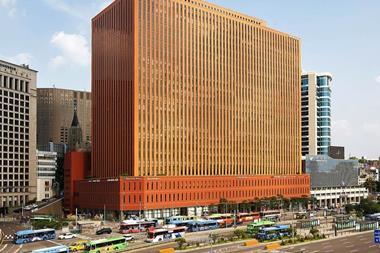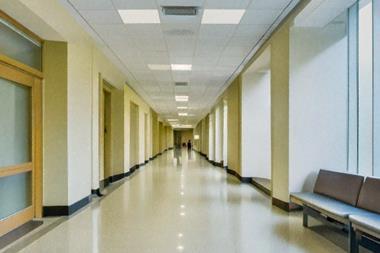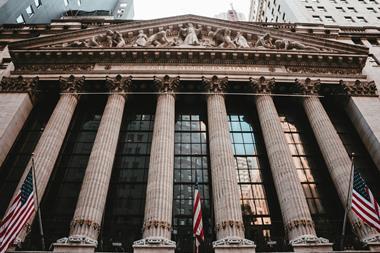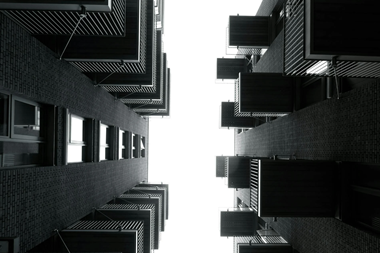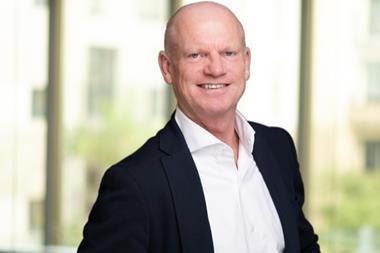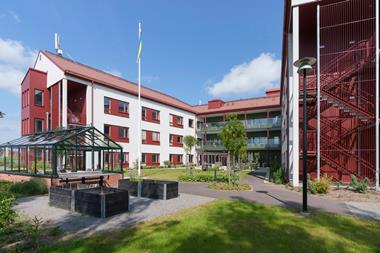The strong downturn in the US office market has affected German pension funds, which have built up significant exposure to the sector over the past decade, but there are indications that they will stick with the market over the long term.
The country’s largest pension scheme, BVK, is currently taking a “wait-and-see approach” as the market undergoes a period of consolidation in many regions and segments, a spokesperson for the scheme said.
BVK has built up a broadly diversified real estate portfolio in the US in recent years and its “goal is to further balance the portfolio”, the spokesperson said. “In particular, we plan to rebalance the allocation between office and retail, while strengthening the share of residential and logistics.”
More broadly, German pension funds for professionals, known as Versorgungswerke, have built up significant exposure to US real estate in recent years, including assets that have been hit by devaluations.
“The topic of real estate really makes the Versorgungswerke busy at the moment,” said a source familiar with the matter. “Professional pension funds are not really under big stress, but have problems with individual investments they made, also in the US.”
Versorgungsverke have around 20% of their assets – totalling about €300bn – invested in real estate, he said.
“The office sector is the biggest problem, but pension funds have built up the real estate office portfolio in the US cautiously – that is also why it hurts a little less,” the source added.
The devaluations of properties acquired in the past 10 years does not lead necessarily to write-offs or balance-sheet losses but can dent the reserves of pension funds used as a risk buffer. “That means an impact on the risk budget,” the source said, leading to cautioun around asset allocation. “Versogungswerke have built strong reserves,” the source said.
The risk of potential losses has triggered a parliamentary inquiry relating to BVK by a group of social democrats members of parliament of the state of Bavaria on investments in luxury real estate in the US.
BVK, Deutsche Finance Group, Universal Investment and real estate developer Michael Shvo have been the target of a lawsuit filed by Core, a private members’ club, Jennie Enterprise, Dangene Enterprise, founders and owners of Core, seeking damages for allegedly failing to deliver on the promises to develop properties in New York City, San Francisco and Milan. Universal Investment manages the investment in 711 Fifth Avenue, which leases space to Core, on behalf of BVK, according to the lawsuits.
BVK declined to comment on the investments due to the confidentiality of co-investors, business partners and service providers. But it said that was available to reply to questions from the MPs, although it had not yet been invited by any committee of the Bavarian state parliament.
Market outlook varies across the UK
US offices are still feeling the effects of post-COVID hybrid working practices, although the situation varies across the market. “There have been strong real estate value corrections of 30-40% in the office market in Washington and in Manhattan midtown of 10%,” said Volker Zinkl, head of real estate asset management international at MEAG, the asset manager of German insurer Munich Re.
He cited the contrast between Manhattan midtown offices – which are seeing strong leasing, rental growth, cap-rate compression – and downtown Manhattan where there are much higher levels of vacancy.
“In San Francisco the office market is [still] under pressure, with many tech companies that have moved to Texas,” Zinkl added. “San Francisco is very expensive for employees, and also the security situation in the city is not great. If you invest in the wrong region you face losses.”
MEAG has invested €2.5bn in US real estate, of which €400m is in residential and the rest office, concentrated in Manhattan.
JLL’s latest US office market report for Q3 shows signs of market recovery, with large employers pushing for office attendance from their employees, leasing activity growing by 0.4% over Q2, and the availability rate declining for the first time in more than five years.
BVK said it had a positive outlook for the US real estate market over the long term due to the high potential for innovation and growth in the US economy.
“In our view, the US is and will remain the world’s largest and most important investment market,” the spokesperson said.
“The majority of our US real estate investments are in the core-core-plus segment. These properties are generally in prime locations and have solid occupancy rates. We expect that there will continue to be strong demand in the US in the medium to long term for high-quality office properties that meet today’s requirements in terms of location and amenities.”
Zinkl said high-quality office space with amenities are attractive, while those that have been renovated for a long time will probably stay empty, resulting in higher costs.
“In the long run we expect a good performance of our investments in the US, as the macroeconomic factors look better than in the EU – for example, productivity, population growth and clear regulatory framework,” said Matthias Huesmann, head of portfolio management for real estate at Ärzteversorgung Westfalen-Lippe (ÄVWL), the pension fund for doctors in Germany’s Westphalia-Lippe region.
ÄVWL aims for long-term diversification by sector and region in the US to avoid idiosyncratic risks. “That has worked in the last years for us,” Huesmann said.
To read the latest IPE Real Assets magazine click here.






